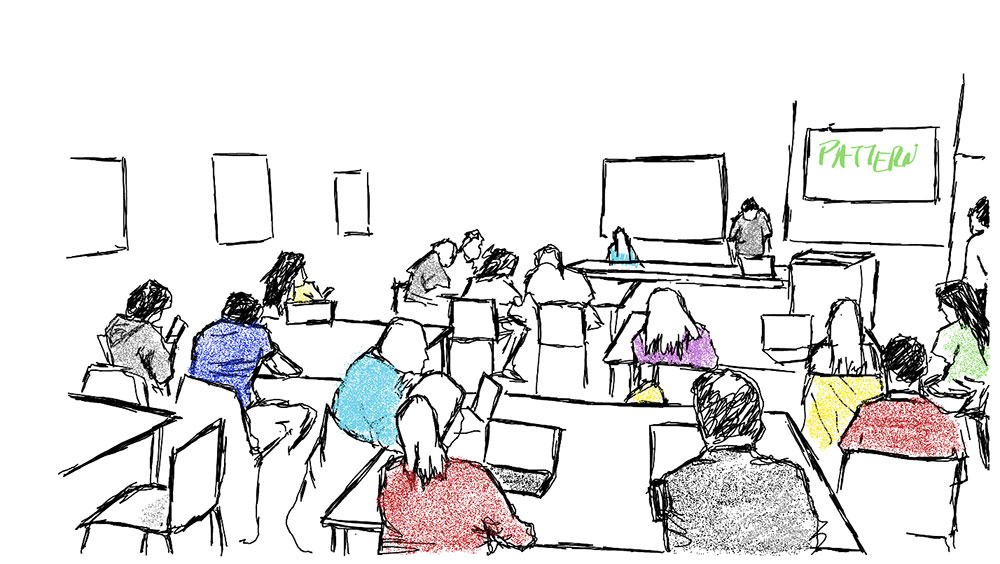On Friday, 16th of May 2025, the event “Responsible Research through Open Science” was held at the Library and Information Center of the University of Patras. The event was organized as part of the PATTERN project, a coordination and support action whose aim is to promote the practice of Open and Responsible Research and Innovation (Open RRI) by developing and piloting training activities for researchers at all stages of their careers. PATTERN exists due to the institutional and societal need to increase researchers’ professional skills development beyond academia. In fact, graduates are increasingly taking non-academic career paths after the completion of their PhD and research institutions started to invest resources in offering their researchers advanced training in more transversal and transferable skills that can help smoothen this transition.
This event was oriented to researchers of any level, from Academic and Research Institutions based in Western Greece or the Peloponnese (i.e. University of Patras, Hellenic Open University and University of the Peloponnese), and members of start-ups and spin-offs that also develop research activity. The event was divided into two main parts, aiming at an effective participation by the researchers, since they were able to choose to attend either one of the two, or both.
Part A: Open Science & Research Integrity
The first part was presented by Panagiotis Kavouras, a researcher and an expert in scientific integrity, open science and science communication, working at HEAL-Link. During this three-hour presentation, information on issues and best practices of Open Science and Research Integrity were covered, along with a brief history of these movements in scientific research. In addition to international practices and policies, the tools that HEAL-Link has developed in order to meet researchers’ needs were presented. Important issues were raised for discussion, such as the challenges that a researcher has to face, the ways and reasons behind the reproduction of scientific research, as well as the issue of the replicability crisis. Participants were able to ask questions and discuss concerns or issues that they had to face in the past.
Part B: Best practices on Research Data Management and Scientific Publishing
The second part of the event was focused on the best practices to manage research data, so that they can be properly identified and reused. Factors, criteria and tools for selecting open publishing media for scholarly publications were also presented. This part was divided into two main sections.
The first section was dedicated to best research data management practices, presented by Theodora Karaiskou, working in the Scholarly Communication Unit of HEAL-Link, and by Marios Balatzaras, librarian at the Library and Information Center of the University of Thessaly. The two-hour workshop introduced basic definitions and practices regarding the management of research data according to the FAIR principles (Findable, Accessible, Interoperable, Reusable), the lifecycle of research data and its importance when conducting a complete and effective research data management plan, as well as the ways in which these can be shared and indexed in repositories. The participants, divided into groups of three to five people, were asked to react to possible “scenarios” of management, documentation, or use of research data. Along with the guidance of the trainers, they were able to create a basic data management plan, while they were also able to document data according to the FAIR principles.
The second section was dedicated to Open Access publishing, and was presented by Athanasia Salamoura, working in the Scholarly Communication Unit of HEAL-Link. The basics of Open Access publishing were presented, the various forms of peer review – with emphasis on open peer review and its operation – as well as the issue of predatory journals/publishers and how to distinguish them. The participants were introduced to several tools that can help them during the publication process of their scientific papers, along with the common best practices and the services provided by HEAL-link regarding Open Access publishing.

